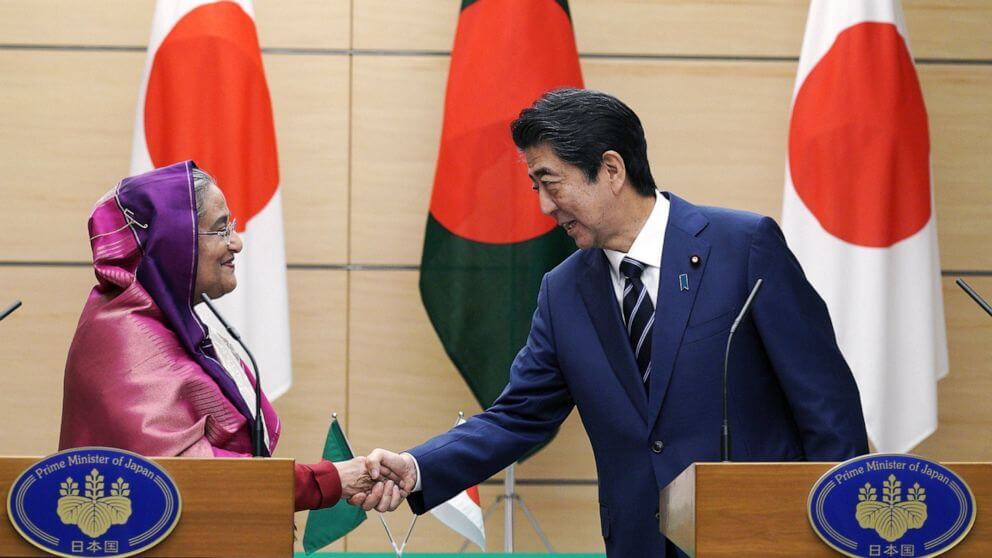Expanding cooperation with Bangladesh, Japan signed a grant worth $5 million to promote primary education in the South Asian country. The aid is part of Japan’s strategic plan, initiated in 2011, to develop and improve the quality of primary education in Bangladesh by developing textbooks, teaching materials and strengthening teacher’s training.
Bilateral relations between Dhaka and Tokyo reached a new level in 2014, when the former committed to Japan’s initiative of the Bay of Bengal Industrial Growth Belt (BIG-B). The BIG-B is viewed as Japan’s cornerstone strategy in South Asia to actively counter Chinese investments in the region. Japan’s concept aims at improving infrastructure for industrial development, creating a better environment for investment, and improving solidarity and connectedness. As part of the initiative, Japan approved $1.18 billion to build the coal-fired Martarbari Power Plant, which completed its first phase of development this year. However, funding for the second phase of the plant is generating controversy in Japan among activist groups. No Coal Japan is demanding that Prime Minister Abe should not finance the second stage of the plant because it goes against the Paris Agreement on climate change, to which Japan is a signatory. However, the two countries agreed to continue collaboration in developing the power station, maintaining that they would try to bolster “long-term decarbonization” through the application of renewable energy.
Bangladesh, for its part, displayed its eagerness to work with Japan by promising to establish a separate economic zone solely for Japanese investors in Chittagong and to make special allocations in existing Export Processing Zones (EPZs) as part of the BIG-B initiative. Dhaka cleared Tokyo’s proposal to finance and build a seaport in Matarbari back in 2015, when Beijing offered to construct the country’s first deepwater port. In addition, in July this year, Bangladesh’s cabinet appointed Japanese firm, Nippon Koei Company, to provide consultancy services for the construction of a deep seaport, which is estimated to be worth about $28 million. Bangladesh’s Planning Minister, M A Mannan, said, “As our economic activities have increased significantly, the construction of a deep seaport is now a demand of time.”
Japan also released a loan package of $3.2 billion to Bangladesh this month, its largest-ever Official Development Assistance (ODA) to Dhaka since 1974. The ODA includes funding for building infrastructure, improving transport, and enhancing urban governance projects. The heads of the two states held a telephonic talk at the beginning of the month, wherein Bangladesh’s Prime Minister Sheikh Hasina extended her thanks to her Japanese counterpart Shinzo Abe for the ODA Loan provided in response to the coronavirus crisis in the South Asian country.
Japan Grants Bangladesh $5 million in Assistance to Promote Primary Education
In a move to strengthen bilateral cooperation, Tokyo gave Dhaka aid worth $3.2 billion.
August 28, 2020

Bangladesh Prime Minister Sheikh Hasina and her Japanese counterpart, Shinzo Abe during a meeting at his office in Japan, May 2019. SOURCE: AP PHOTO/EUGENE HOSHIKO/POOL
